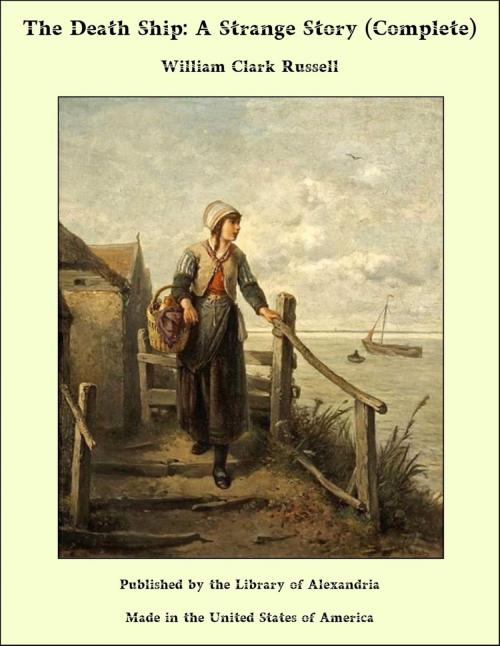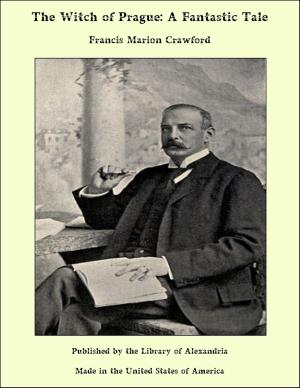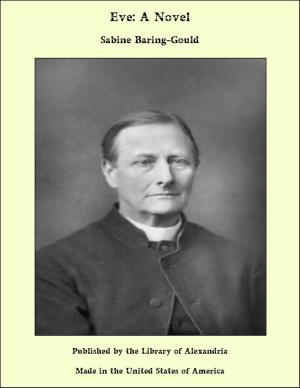The Death Ship: A Strange Story (Complete)
Nonfiction, Religion & Spirituality, New Age, History, Fiction & Literature| Author: | William Clark Russell | ISBN: | 9781465604255 |
| Publisher: | Library of Alexandria | Publication: | March 8, 2015 |
| Imprint: | Language: | English |
| Author: | William Clark Russell |
| ISBN: | 9781465604255 |
| Publisher: | Library of Alexandria |
| Publication: | March 8, 2015 |
| Imprint: | |
| Language: | English |
I will pass by all the explanations concerning the reasons of my going to sea, as I do not desire to forfeit your kind patience by letting this story stand. Enough if I say that after I had been fairly well grounded in English, arithmetic and the like, which plain education I have never wearied of improving by reading everything good that came in my way, I was bound apprentice to a respectable man named Joshua Cox, of Whitby, and served my time in his vessel, the Laughing Susan—a brave, nimble brigantine. We traded to Riga, Stockholm, and Baltic ports, and often to Rotterdam, where, having a quick ear, which has sometimes served me for playing upon the fiddle for my mates to dance or sing to, I picked up enough of Dutch to enable me to hold my own in conversing with a Hollander, or Hans Butterbox, as those people used to be called; that is to say, I had sufficient words at command to qualify me to follow what was said and to answer so as to be intelligible; the easier, since, uncouth as that language is, there is so much of it resembling ours in sound that many words in it might easily pass for portions of our tongue grossly and ludicrously articulated. Why I mention this will hereafter appear. When my apprenticeship term had expired, I made two voyages as second mate, and then obtained an appointment to that post in a ship named the Saracen, for a voyage to the East Indies. This was anno1796. I was then two-and-twenty years of age, a tall, well-built young fellow, with tawny hair, of the mariner's complexion from the high suns I had sailed under and the hardening gales I had stared into, with dark blue eyes filled with the light of an easy and naturally merry heart, white teeth, very regular, and a glad expression as though, forsooth, I found something gay and to like in all that I looked at. Indeed it was a saying with my mother that "Geff,"—meaning Geoffrey—that "Geff's appearance was as though a very little joke would set the full measure of his spirits overflowing."
I will pass by all the explanations concerning the reasons of my going to sea, as I do not desire to forfeit your kind patience by letting this story stand. Enough if I say that after I had been fairly well grounded in English, arithmetic and the like, which plain education I have never wearied of improving by reading everything good that came in my way, I was bound apprentice to a respectable man named Joshua Cox, of Whitby, and served my time in his vessel, the Laughing Susan—a brave, nimble brigantine. We traded to Riga, Stockholm, and Baltic ports, and often to Rotterdam, where, having a quick ear, which has sometimes served me for playing upon the fiddle for my mates to dance or sing to, I picked up enough of Dutch to enable me to hold my own in conversing with a Hollander, or Hans Butterbox, as those people used to be called; that is to say, I had sufficient words at command to qualify me to follow what was said and to answer so as to be intelligible; the easier, since, uncouth as that language is, there is so much of it resembling ours in sound that many words in it might easily pass for portions of our tongue grossly and ludicrously articulated. Why I mention this will hereafter appear. When my apprenticeship term had expired, I made two voyages as second mate, and then obtained an appointment to that post in a ship named the Saracen, for a voyage to the East Indies. This was anno1796. I was then two-and-twenty years of age, a tall, well-built young fellow, with tawny hair, of the mariner's complexion from the high suns I had sailed under and the hardening gales I had stared into, with dark blue eyes filled with the light of an easy and naturally merry heart, white teeth, very regular, and a glad expression as though, forsooth, I found something gay and to like in all that I looked at. Indeed it was a saying with my mother that "Geff,"—meaning Geoffrey—that "Geff's appearance was as though a very little joke would set the full measure of his spirits overflowing."















